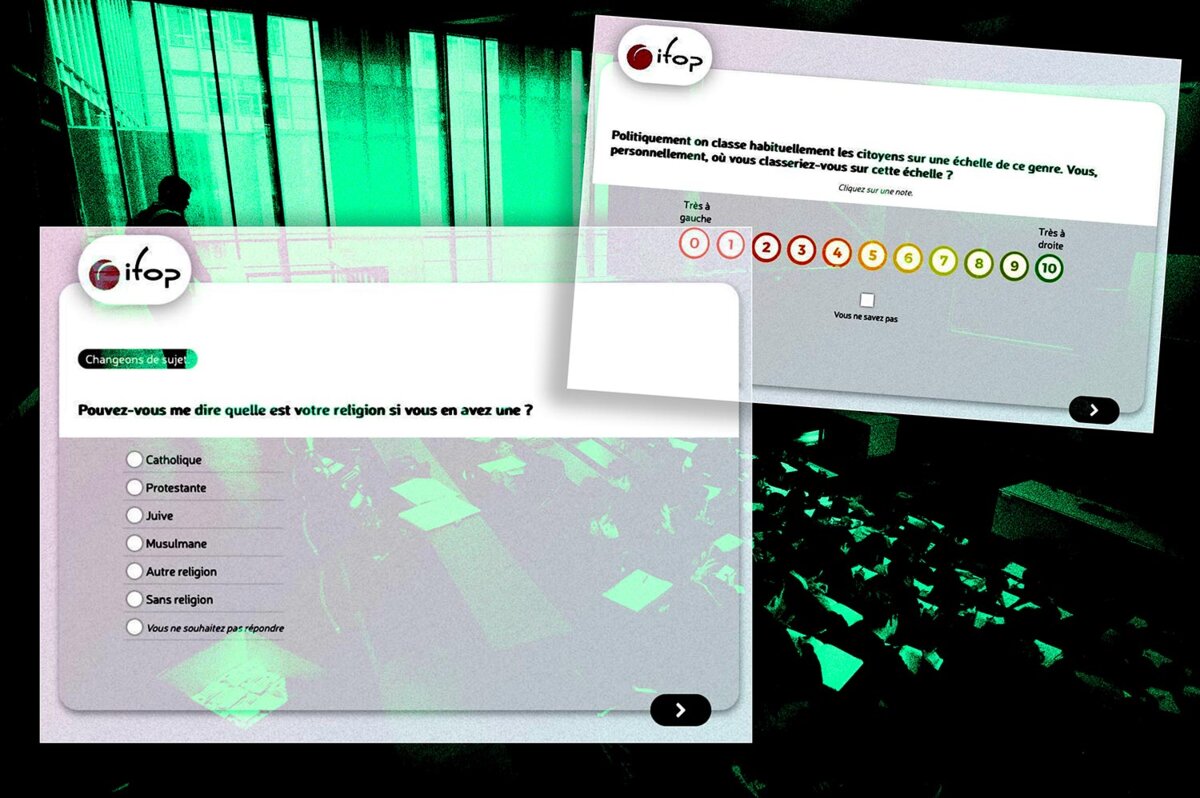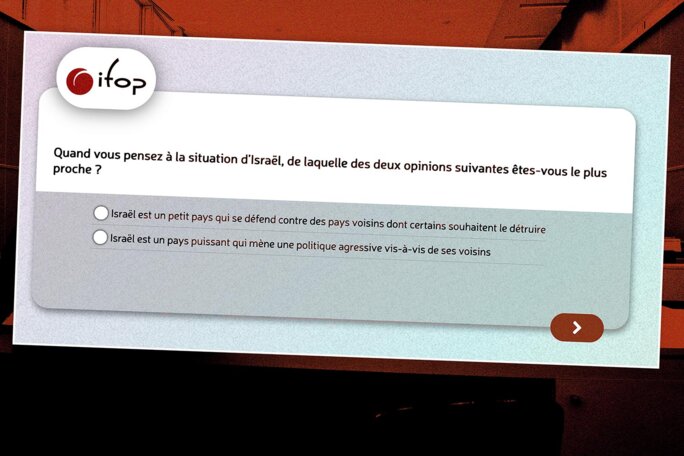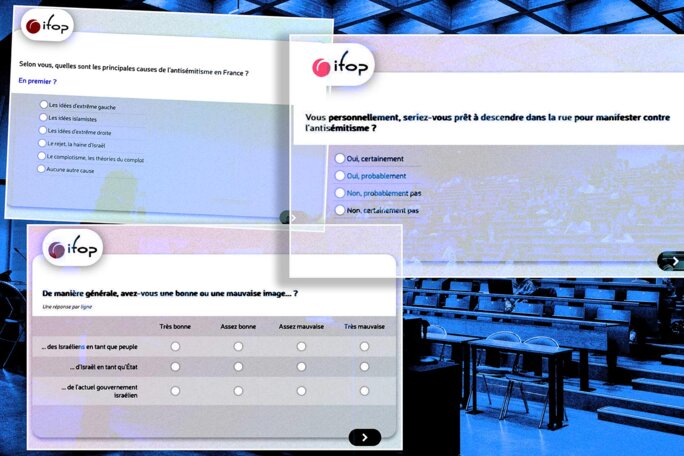For days, universities and other higher education bodies in France have been in uproar. Emails and messages have been flying around ever since the Ministry of Higher Education asked the heads of each institution to get all university employees, whether teaching, office or technical staff, to fill in a long questionnaire on anti-Semitism.
“We thank you in advance for your help with this public interest initiative, which aims to better understand and prevent displays of anti-Semitism in our academic community,” reads the email, drafted by the research and innovation unit (DGRI) at the ministry and sent out on Wednesday November 19th.
The 44-page questionnaire form quickly provoked sharp criticism as well as questions. In a statement issued on November 23rd, the main union for teaching and research staff in higher education, Snesup-FSU, did not mince its words over what it called a “scientific farce”. It declared: “This questionnaire falls down on many grounds, with muddled themes, signposted answers […] and the unlawfulness of having public servants being questioned by their line managers as to their political and religious beliefs.”

Enlargement : Illustration 1

The union “demanded” that the minister “drop the roll-out of this questionnaire” and “called on university presidents not to act as a go-between for the ministry and not to pass on this poll”.
According to a reply sent to the ministry on Monday November 24th, and seen by Mediapart, France Universités - the body that represents most university presidents in France - has in fact chosen not to relay the questionnaire to staff. The organisation says the survey raises a “certain number of problems in its design and in the questions asked”.
The ministry commissioned the questionnaire from CEVIPOF, the political research centre at Sciences Po university, which said in an email to Mediapart that the survey follows a “traditional and tested methodology”.
“Staff were asked to answer an online, self-completing questionnaire, through a link fully handled by Ifop, the polling firm in charge of running the fieldwork and collecting the responses […] Those who reply do so of their own free will and no staff member is forced to take part,” it said.
Criticism of the substance of the questionnaire ...
The survey was designed in two main sections. The first mixes many questions about how far those polled subscribe to certain stereotypes linked to Jewish people, asks their view on the extent to which each main French political party bears responsibility for the “rise of antisemitism in France”, and asks whether the respondent would be ready to “take to the streets to march against anti-Semitism”. It is not possible to skip a question or tick “no view”.
“There are some slightly dodgy questions that don't give you much faith as to how it might be treated in the media,” says Clément Lafargue, who for 18 months has been the staff representative on issues of “discrimination and racist and antisemitic violence” at the prestigious École Normale Supérieure Paris-Saclay institute.
Page 24, for instance, contains the question: “When you think about the situation in Israel, which of the two following views are you closest to?” The institute offers only two answers, between which the respondent must choose. The first is: “Israel is a strong country that conducts an aggressive policy towards its neighbours”. The second is: “Israel is a small country that defends itself against neighbouring countries, some of which wish to destroy it.” The respondent cannot skip the question or add nuance to either proposition.

Enlargement : Illustration 2

Another question asks: “In your view, is each of the following widespread or not widespread in your institution?” It then lists, on an equal footing, the following options: “Hatred of Israel”, “showing support for the Palestinian cause”, “showing support for Hamas” and “hatred of Zionists”. This represents “dangerous confusion”, Nicolas Cadène, former general rapporteur for the secular watchdog body the Observatoire de la laïcité, wrote on X.
Another item was also widely shared - and mocked - on social media, after Le Monde journalist Stéphane Foucart posted it on Bluesky: respondents are asked to rank themselves “politically” on a colour scale running from red to green, with 0 being “far-left” and 10 “far-right”. This is the only question that offers a “don't know” box.
This isn't a survey, it's a census!
Asked about this, CEVIPOF insisted on the contrary that the “questionnaire uses standard questions taken from many quantitative surveys, not specific to the survey ordered by the ministry”, and says the questionnaire has been “overseen by two researchers who are experts in statistics, data analysis, and political views and behaviour. Their expert methodology should be respected. Their freedom and academic independence should be fully protected,” it stated.
However, an internal source commented: “This is the first time I’ve seen something so badly put together.” They added: “In our work we sometimes spot two or three questions that have limitations, but it's no big deal. Here, the wording is very signposted. Yet you need to be careful with such sensitive issues!”
…and concern about its form
The second part of the questionnaire, which comes to more than 15 pages, seeks to gather as much information as possible about the member of university staff taking part. Though the ministry's DGRI unit stresses in its email that the “anonymity of those who respond is strictly guaranteed” – a point CEVIPOF also underlined to Mediapart – this claim is dismissed by the organisation RogueESR. Founded in 2017 to promote freedom of research within universities, this collective body has been expressing its concerns since the higher education reforms pushed through by President Emmanuel Macron. “The anonymity of those who take part is not guaranteed, for they can be re-identified by cross-checking variables,” it says about the questionnaire on its website.
To put it more simply: the questionnaire gathers a large amount of personal and work-related information - age, gender, post code, academy, type of job - which makes it easy to work out who some of those who reply are. “The questionnaire gathers sensitive and identifying data, which poses a major risk in terms of the safeguarding of personal data,” the collective says, adding that “sending a political questionnaire to public servants is a first: it breaches the principle of institutional neutrality”.
Emmanuel de Lescure, general secretary of the Snesup-FSU union, says the method chosen is indeed problematic. “What's troubling, even unlawful, is that someone in management is telling those under them to fill in a questionnaire that allows their political and religious views to be known. This isn't a survey, it's a census!” he says.
Clément Lafargue also raises doubts about the way in which the questionnaire was sent to all universities. Usually when the Ministry of Higher Education wants to share information on these matters, it uses a general “discrimination” mailbox to contact all those staff representatives who handle such issues at higher education institutions in France. But this time, the ministry went straight to university presidents. “I wrote back to my director of services to say I would not pass this on, and I discouraged him from doing so,” says Clément Lafargue.

Enlargement : Illustration 3

Another detail spotted by some recipients of the message was that the questionnaire link is to a form hosted by Google, an American firm with servers outside France. This means it is based in a “non-sovereign cloud, which exposes sensitive data to the risk of access by foreign actors”, warns RogueESR.
One final limitation is that no ID is asked for. This means, as Mediapart has found, that anyone with the Google link can fill it in, as many times as they wish.
A response to an 'alarming' climate
This questionnaire is part of a large research programme on the scientific study of anti-Semitism in higher education and research, in partnership with the inter-ministerial anti-racism body, the Délégation interministérielle à la lutte contre le racisme, l’antisémitisme et la haine anti-LGBT+ (DILCRAH), and the Shoah Memorial institute. Officially launched on April 29th 2025 by Philippe Baptiste, the minister for higher education, it aims to respond to an “alarming rise in anti-Semitic acts in our society”, which, he said, also affects higher education.
The minister pointed to “70 alerts” that had been sent to the ministry’s monitoring unit since October 7th 2023, involving “hateful writing, slurs, threats, praise for terrorism or Nazism, and in some cases acts of violence”. He also spoke of “deeply troubling” accounts from Jewish students.
Three research projects were chosen at the time: an in-depth study of a small group of students by the university of Nanterre, west of Paris; a victim-based survey on discrimination, including anti-Semitism, run by the national observatory for discrimination and fairness in higher education ONDES; and a large quantitative survey by questionnaire, aimed at all those in higher education and research. This last one is the CEVIPOF survey that is now at the heart of the current row.
“Overall, I thought that these three types of study made sense as they complement each other well,” says Yannick L’Horty, director of ONDES, who has attended the meetings held since April on the issue. “Locating anti-Semitic positions in relation to political values and commitment seems to me to be a fairly classic approach in political science or electoral sociology. Moreover, the researcher who is leading the study is excellent, a true professional.”
At the launch of this study, government minister Philippe Baptiste stressed the need for a serious approach. “On a theme as sensitive and complex as anti-Semitism, it's vital to replace stereotypes and simplistic ideas with hard knowledge backed by solid field methodology,” he declared.
The strong pushback from the university world seems to indicate that this approach has not been at all convincing. In its stinging response to the request to pass on the questionnaire, France Universités says: “Surveys are vital in fighting anti-Semitism and all forms of hate and discrimination as effectively as possible. They must therefore meet the highest standards of both methodology and law.”
-------------------------------------------------------------------------------
- The original French version of this report can be found here.
English version by Michael Streeter


